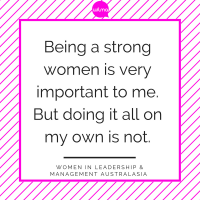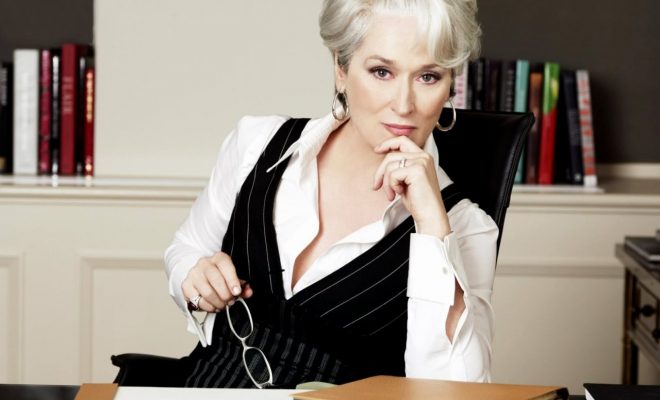She might not be a feminist, but Australia’s first female Foreign Minister is a huge asset to the government and aspiring women leaders.
Julie Bishop has had quite a November. In between outrunning her security detail at the APEC Summit in Beijing and being named “woman of the year” by several magazines, Australia’s only female cabinet minister made some noteworthy reflections on women in leadership.
At a Press Club lunch to honour Australian women in media, she paid tribute to all the women who have been cabinet ministers before her.
“The challenge I have set for myself is to do the best I can for those who will follow me. I feel that responsibility every day,” she said.
She has already made history as Australia’s first female Foreign Minister and one of a very small number around the world, and so this responsibility might weigh heavier on her than most. She is most often the only woman in meetings full of men, not just cabinet. Look at any of the group photos from her travels.
Ms Bishop was a key figure at the recent G20 Summit, and chaired three meetings at the United Nations Security Council (on counter-terrorism, peacekeeping and Ebola) as part of Australia’s presidency. For the month of November, Australia was at the heart of global affairs, and hers was the face we showed the world. And most Australians are very happy about that.
But, all this international activity has put the spotlight on her sole role in cabinet.
In response to a question from journalist Michelle Grattan about what difference women make in cabinet, Ms Bishop replied: “I don’t think there is such a divide [between genders].
“In cabinet, we deal with a whole range of issues and I have an opinion on every single one, likewise the males. But we do need to be more representative generally; we need diversity in our Parliament.”
Prime Minister Tony Abbott has made a virtue of stability in appointing his cabinet, but there will be pressure for a reshuffle in December and the women “knocking at the door” have an excellent case to be considered on several grounds.
The first is good old merit, however defined. There are clearly good performers outside the cabinet who are respected, competent, party contributors and electorally popular. Named by Bishop and consistently recognised by polly-watchers as deserving of promotion are Sussan Ley MP, Senator Michaelia Cash, Senator Marise Payne, Senator Fiona Nash and Kelly O’Dwyer MP.
No one is going to blink an eye or question the merit of such women if they are promoted tomorrow. In fact, the reverse is true. Here is a surfeit of merit. What precisely is your problem?
Diversity then, is a virtue to be balanced with stability, along with whatever internal key performance indicators Coalition members are using.
Appointing more women sends a message about diversity and policy intentions, as we have clearly seen with other nations. It has to be pursued in good faith. To underline his “womenomics” policy, Japanese President Shinzo Abe appointed five women in September, only to promptly lose two in scandals. It led to strong criticism about tokenism in the kinds of women he appointed.
Indonesia’s recent historic cabinet featured 18 women, many appointed as experts in their fields, including their first female foreign minister, which was widely applauded. In the US mid-term, 100 women were elected to Congress for the first time (out of 535 legislators). To many, that is still nowhere near enough.
The question then is: does it matter what kind of diversity? Does Julie Bishop make a difference to cabinet, even if she does not self-describe as a feminist?
Yes, she does.
Conservative female politicians prefer an individualist mode of self-description; no surprises there. Women are diverse, as they are not a minority. I repeat, not a minority. For many, Bishop’s motto of “stop whingeing, get on with it and prove them all wrong” will be very attractive. However, progressive women (including myself) will often prefer a more structural explanation of gender in society.
The power of representing a majority group means that one woman cannot represent all women, just as former prime minister Julia Gillard could not. You have to read the memoirs to find out what most politicians really think. Mr Abbott can call himself a feminist and be seen as avuncular; Ms Bishop would be seen as ambitious for the top job.
Diversity is worth pursuing as a democratic value, and to aid better decision-making. Cabinet needs a reshuffle and there does not seem a single good reason why the door should not be opened to more women. They will have opinions. And Australia will be better for hearing them.
This article was originally published on Canberra Times 2nd December. Read the original article.









Leave A Comment